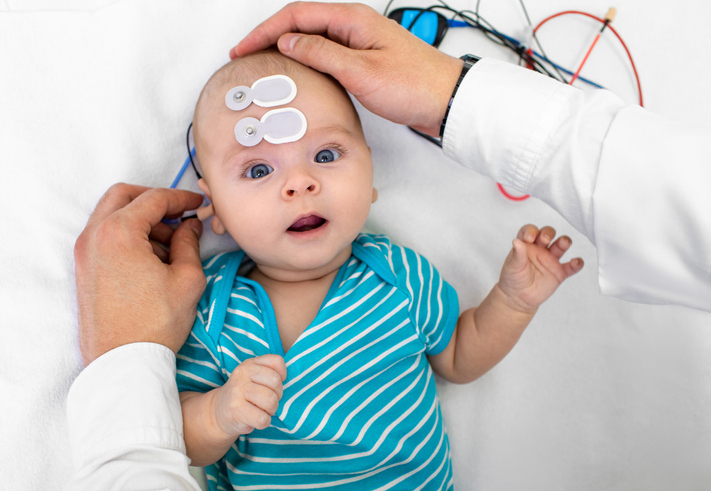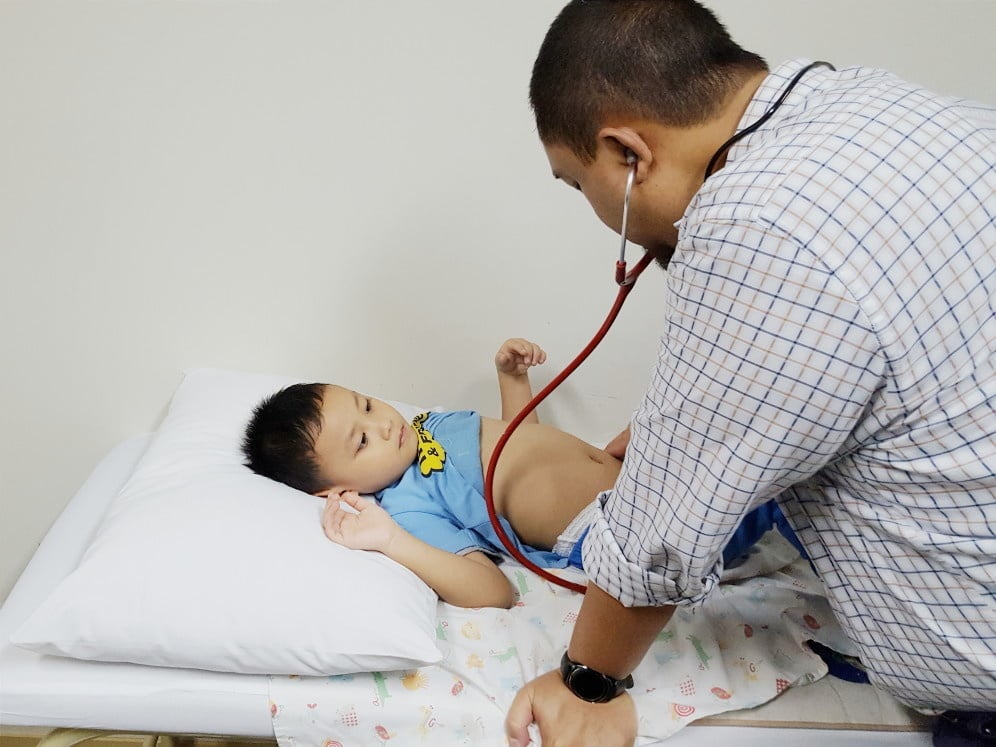Why Is Your Childs Medical Diagnosis Important?
Understanding your child’s medical diagnosis is crucial for timely interventions, personalized treatment plans, and better outcomes. It helps prevent disease progression, tailor care to their needs, and manage symptoms effectively. Educating caregivers and parents equips you to provide essential support and participate actively in their care. By knowing their diagnosis, you can avoid risks of misdiagnosis, access necessary support services, and plan for their medical needs in the future. Embracing your child’s diagnosis empowers you to navigate their healthcare journey with knowledge and compassion, leading to improved well-being and quality of life for your little one.
Key Takeaways
- Early diagnosis improves long-term outcomes.
- Tailored treatment plans prevent complications.
- Understanding symptoms aids in determining causes.
- Timely interventions prevent disease progression.
- Proper diagnosis ensures access to support services.
Early Intervention Benefits

Early intervention can greatly enhance the long-term outcomes for children diagnosed with medical conditions at a young age. When medical conditions are detected early, intervention success rates dramatically improve. Timely interventions can help address the underlying issues promptly, potentially preventing further complications and improving the child’s quality of life.
Early detection plays a vital role in the success of interventions. By identifying medical conditions in their initial stages, healthcare providers can implement appropriate treatment plans tailored to the child’s specific needs. This proactive approach allows for interventions to be more effective, as they can target the condition before it progresses.
Parents and caregivers are essential partners in the early intervention process. By closely monitoring the child’s development and promptly seeking medical attention if any concerns arise, they can contribute to the success of interventions. Working collaboratively with healthcare professionals can ensure that the child receives the necessary support and resources to thrive despite their medical diagnosis.
Tailored Treatment Plans

Detecting medical conditions early allows healthcare providers to create tailored treatment plans specific to your child’s needs, optimizing their outcomes and quality of life. Personalized care is essential in addressing your child’s unique medical diagnosis. By taking an individualized approach, healthcare professionals can consider all aspects of your child’s condition, such as their age, overall health, and any specific challenges they may face.
Tailored treatment plans are designed to meet your child’s specific requirements, ensuring that they receive the most effective care possible. These plans may include a combination of therapies, medications, lifestyle adjustments, and follow-up appointments to monitor progress.
With a focus on personalized care, your child can benefit from treatments that are specifically tailored to their condition, promoting better outcomes and overall well-being.
Preventing Disease Progression

Tailored treatment plans play a pivotal role in preventing the progression of diseases in children, ensuring that interventions are specifically tailored to address their unique medical needs for best health outcomes.
Early detection through regular check-ups and screenings is key in identifying any potential health issues before they worsen. By catching diseases in their early stages, healthcare providers can implement timely interventions to manage the condition effectively.
Effective disease management strategies, such as medication adherence, lifestyle modifications, and regular follow-ups, are essential in preventing the advancement of illnesses in children. Following a thorough treatment plan designed specifically for your child’s condition can greatly slow down disease progression and improve their overall quality of life.
It’s important to work closely with healthcare professionals to monitor your child’s health status regularly and make any necessary adjustments to the treatment plan.
Understanding Symptoms Better

To better understand your child’s symptoms, it’s essential to pay close attention to any changes in their health and behavior. By being observant and noting down specific details, you can provide valuable information to healthcare professionals that may aid in symptom management and lead to diagnosis clarity.
Symptoms can vary widely, from physical manifestations like rashes or fevers to behavioral changes such as increased irritability or changes in sleep patterns. Understanding these symptoms can provide critical insights into your child’s health and help in determining the underlying cause of their discomfort.
Effective symptom management involves not only treating the symptoms themselves but also addressing the root cause. It’s important to communicate openly with your child’s healthcare provider, sharing all observed symptoms and any relevant information that could contribute to a more accurate diagnosis.
Educating Caregivers and Parents
When caring for a child with a medical condition, it’s essential to provide caregivers and parents with the necessary education and resources. Caregiver education plays an important role in ensuring the well-being of the child. By equipping caregivers with the knowledge and skills to manage the child’s condition, they can provide better care and support.
Parents’ involvement in understanding their child’s medical diagnosis is equally crucial. It helps them make informed decisions about the child’s treatment and daily care.
Educating caregivers involves training on administering medication, recognizing symptoms that require immediate attention, and implementing treatment plans effectively. This education empowers caregivers to handle medical emergencies confidently. Additionally, providing resources such as informational materials and access to support groups can ease the journey of caring for a child with a medical condition.
Parent involvement in the child’s medical care fosters a collaborative approach between healthcare providers and families. It enables parents to actively participate in treatment discussions and advocate for their child’s needs.
Ultimately, caregiver education and parent involvement contribute significantly to the overall well-being of the child with a medical diagnosis.
Enhancing Quality of Life
As you navigate your child’s medical diagnosis, consider how enhancing their quality of life can greatly impact their treatment outcomes, access to necessary resources, and emotional well-being.
By prioritizing interventions that improve their overall well-being, you can create a supportive environment that fosters resilience and growth.
Impact on Treatment
Enhancing the quality of life for a child with a medical diagnosis involves a multi-faceted approach that focuses on addressing physical, emotional, and social needs.
When it comes to the impact on treatment, individualized care plays a pivotal role in optimizing the effectiveness of interventions.
Tailoring treatments to your child’s specific diagnosis and circumstances guarantees that they receive the most suitable and efficient care possible.
By understanding how your child’s medical diagnosis influences treatment options, you can work closely with healthcare providers to develop a personalized plan that caters to their unique requirements.
This personalized approach not only enhances treatment effectiveness but also allows for adjustments to be made based on your child’s progress and changing needs.
Access to Resources
Accessing resources is essential for enhancing the quality of life for a child with a medical diagnosis. Support networks play a vital role in providing emotional, practical, and informational support to both the child and the family. These networks can consist of healthcare professionals, support groups, and other families facing similar challenges.
By connecting with these networks, you can access valuable resources, share experiences, and learn coping strategies.
Furthermore, financial assistance is often available to help alleviate the burden of medical expenses. This assistance can come in the form of insurance coverage, government aid, or grants from organizations dedicated to supporting children with medical needs.
Emotional Well-Being
Supporting your child’s emotional well-being is essential in enhancing their quality of life while managing a medical diagnosis. Coping strategies play an important role in helping your child navigate the emotional challenges that may arise from their condition.
Encouraging open communication, providing a safe space for expressing feelings, and seeking professional mental health support when needed can greatly impact their well-being.
Emotional support from family, friends, and healthcare providers is crucial in helping your child feel understood and supported throughout their medical journey. It’s essential to prioritize self-care for both you and your child, as managing a medical diagnosis can be emotionally draining.
Encouraging activities that promote relaxation, maintaining a healthy balance between treatment and daily life, and seeking emotional support for yourself can positively impact your child’s emotional well-being.
Managing Expectations Effectively
To navigate the complexities of managing expectations effectively, it’s essential to maintain open and honest communication with all involved parties. Setting boundaries and fostering clear communication can help in establishing realistic expectations.
It’s important to provide emotional support not only to your child but also to yourself. Remember, self-care strategies are essential to maintain your well-being during this challenging time.
When discussing your child’s medical diagnosis with others, be transparent about what you know and seek guidance from healthcare professionals to guarantee accurate information is shared. Acknowledge that managing expectations is an ongoing process that may require adjustments based on new information or developments.
Avoiding Misdiagnosis Risks

When discussing your child’s medical diagnosis with others, it’s important to be vigilant about avoiding misdiagnosis risks by seeking multiple opinions from qualified healthcare professionals.
Diagnostic accuracy is essential in ensuring your child receives the appropriate care and treatment. Misdiagnosis risks can lead to delays in identifying the true underlying condition, potentially impacting your child’s health and well-being.
By consulting with different specialists and obtaining second opinions, you can increase the chances of accurate diagnosis and timely intervention.
Early detection plays a significant role in addressing health concerns promptly, allowing for better management of your child’s medical condition. Misdiagnosis can’t only result in unnecessary treatments but can also hinder the implementation of effective interventions.
Therefore, it’s vital to advocate for your child’s health by proactively seeking expert opinions to minimize the risks of misdiagnosis. Remember, your child’s well-being depends on accurate diagnoses and timely interventions guided by qualified healthcare professionals.
Facilitating Access to Support Services
Guarantee your child has access to a wide range of support services to enhance their overall well-being and quality of life. Support coordination plays an essential role in making sure that your child receives the necessary services and assistance. By having a support coordinator, you can easily navigate through the various support services available, making it easier to access the right resources for your child.
Additionally, community connections are important for expanding your support network and providing a sense of belonging for your child.
Service navigation is another key aspect of facilitating access to support services. With proper guidance and advocacy assistance, you can efficiently maneuver through the complexities of the healthcare system and social services. Advocacy assistance can empower you to effectively communicate your child’s needs and ensure they receive the best possible care and support.
Planning for the Future
Consider devising a detailed plan to secure a stable and supportive future for your child’s ongoing medical needs. When facing a child’s medical diagnosis, it’s important to think ahead and prepare for the long term. Financial planning plays a significant role in ensuring that your child receives the necessary care without straining your family’s resources.
Investigate options like health insurance coverage, government assistance programs, or setting up a special needs trust to safeguard your child’s financial well-being.
Additionally, long term care is an essential aspect to contemplate. Evaluate potential caregivers or facilities that specialize in your child’s medical condition. Establishing a network of supportive professionals can provide peace of mind knowing that your child’s needs will be met in the years to come.
It’s also beneficial to outline a detailed care plan that addresses medical treatments, therapies, and any adjustments that may be needed as your child grows.
Frequently Asked Questions
How Can I Help My Child Cope With Their Diagnosis Emotionally?
To help your child cope emotionally with their diagnosis, offer parental support by listening, validating feelings, and seeking professional help if needed. Teach coping strategies, focus on building emotional resilience, and prioritize their mental health.
Are There Any Alternative or Complementary Therapies That Can Help?
You can explore natural remedies like acupuncture and herbal supplements as holistic approaches to supplement traditional treatments. These therapies may provide additional support and promote overall well-being for your child’s health journey.
What Are the Long-Term Effects of My Child’s Medical Condition?
Long-term effects of your child’s medical condition can vary. Monitoring and follow-up care are essential. Treatment options may include medication, therapy, or surgery. Support groups can offer guidance and emotional support throughout your journey.
Can Genetic Testing Provide More Insights Into My Child’s Diagnosis?
Genetic testing can offer valuable insights into your child’s diagnosis, improving accuracy and guiding personalized treatment options. Through genetic counseling, you can better understand the condition, plan for the future, and make informed decisions.
How Can I Connect With Other Parents Facing Similar Challenges?
You can find parent support by joining online communities dedicated to similar challenges. Connecting with others who understand can provide valuable insights, comfort, and a sense of community during difficult times. You’re not alone.
Conclusion
Understanding your child’s medical diagnosis is essential for providing the best possible care and support. By being informed and proactive, you can guarantee early intervention, tailored treatment plans, and prevention of disease progression.
This knowledge will also help you better manage symptoms, educate caregivers, and access necessary support services. By taking these steps, you can navigate the challenges ahead with confidence and plan for a brighter future for your child.

Chad Adan Kace, a young dad from Vermont, shares his parenting journey with a touch of humor and lots of love. Father to a lively baby, he explores the joys and challenges of fatherhood through his stories.







